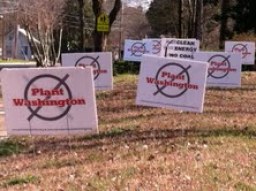Throughout the pandemic, and now with the easy availability of life-saving vaccines to slow the spread of Covid-19, I have genuinely struggled with how people of faith, who are often in church or other places of worship multiple times a week, claiming that not wearing a mask, gathering shoulder to shoulder, and now not being fully vaccinated, is a personal choice.
In some regards it echos the philosophy of Ayn Rand. We have seen the tragic results in both Christian and Hasidic Jewish communities when members acted on the premise of personal choice. I know people who have gone this route and infected family and friends, some too young to be vaccinated.
Recently someone told me about a newsletter from St. Albans, a church just north of Charlotte, that addressed the challenges, and obligations, of being fully engaged in a faith community, where the health of the community, literally, is the responsibility of every member of that group.
The message from the Associate Rector is drawn from Paul’s Letter to the Galatians:
“The on-going and polarizing debate about getting vaccinated during this time of pandemic calls to my mind Paul’s words about “freedom”, especially in his letter to the Galatians. I say this because many who are refusing to get vaccinated are appealing to the notion of individual freedom: “Nobody else should have any say in my personal decisions about my own health.” On the face of it, this seems perfectly reasonable and in keeping with the principles upon which our nation was founded.
Many Christians will point directly to Paul’s words in his letter to the Galatians to support their understanding of individual freedom: “For freedom Christ has set us free. Stand firm, therefore, and do not submit again to a yoke of slavery” (Gal 5:1). A mere twelve verses later, however, Paul contextualizes his understanding of Christ-enabled freedom with these words:
“For you were called to freedom, brothers and sisters; only do not use your freedom as an opportunity for self-indulgence, but through love become slaves to one another. For the whole law is summed up in a single commandment, “ ‘You shall love your neighbor as yourself’ ” (Gal. 5:13).
This is a critically important caveat that we do well to remember. Paul is clear on this point: the freedom that we have in Christ is not meant to encourage a life of libertine self-interest. Quite the opposite! The freedom that we have in Christ calls us away from being enslaved to pure self-interest towards a life that is committed to mutual love and care for others. Paul hammers home this point with the rather shocking words to our 21st century ears, “…through love become slaves to one another.” Professor of Religion Bruce Longenecker says it this way: “Christians have been set free from the enslavement of chaos-inducing self-interestedness in order to allow the self-giving Christ to become incarnate within their own self-giving way of life.”
The decision about whether to get vaccinated, like many decisions in life, is undoubtedly a personal one, with various factors at play. That said, it is important that we, as Christ-followers, try to make such decisions from a place of neighborly love, and not from a place of unfettered self-interest. Instead of thinking only about how a decision is going to affect me personally, we are called to also give serious consideration to how a decision is going to impact the lives of others. Instead of, as Paul says, using our freedom as an opportunity for self-indulgence, we are called to use our freedom in the service of others and for the common good; that is, to love our neighbors as ourselves.
Yours in Christ,
Kevin+
I hope, as the Rector writes, others will feel called to be of service to others and act for the common good of those they know and love.






